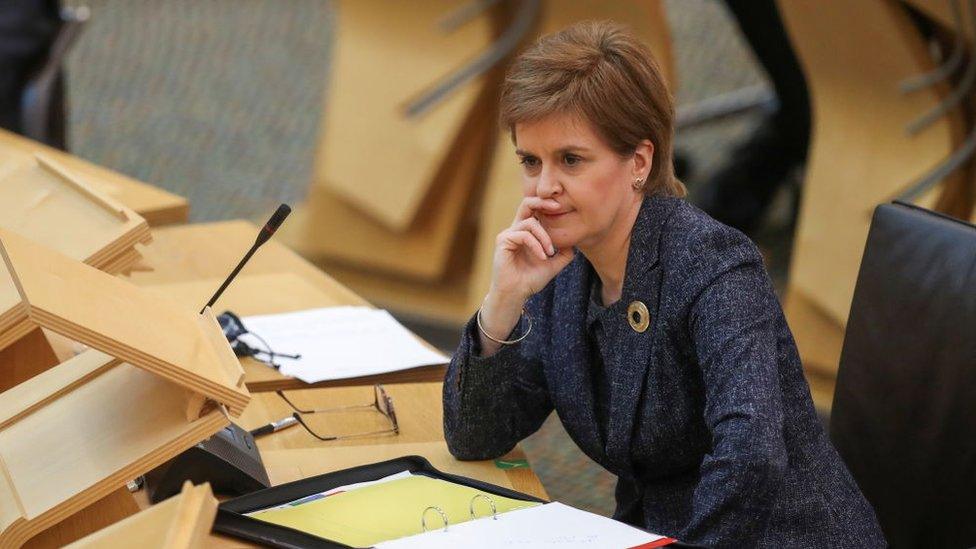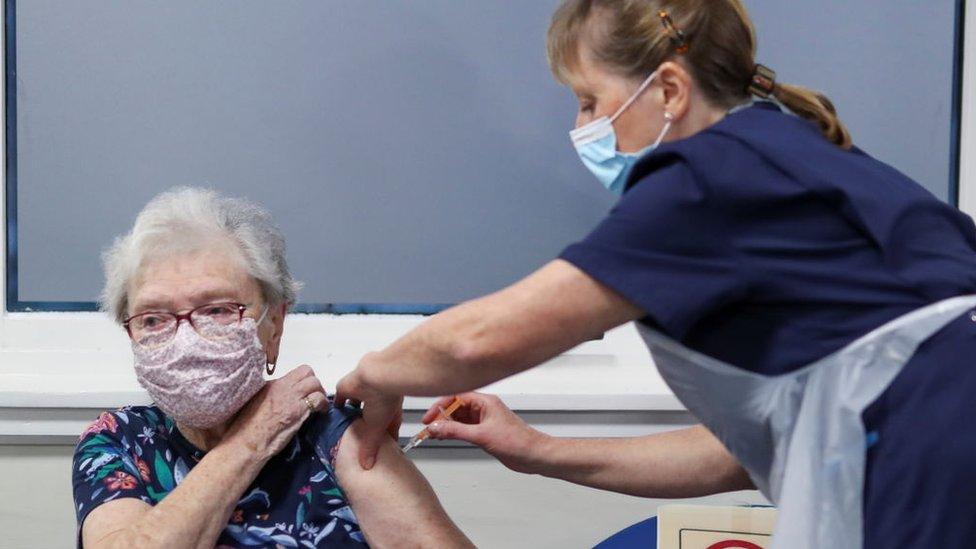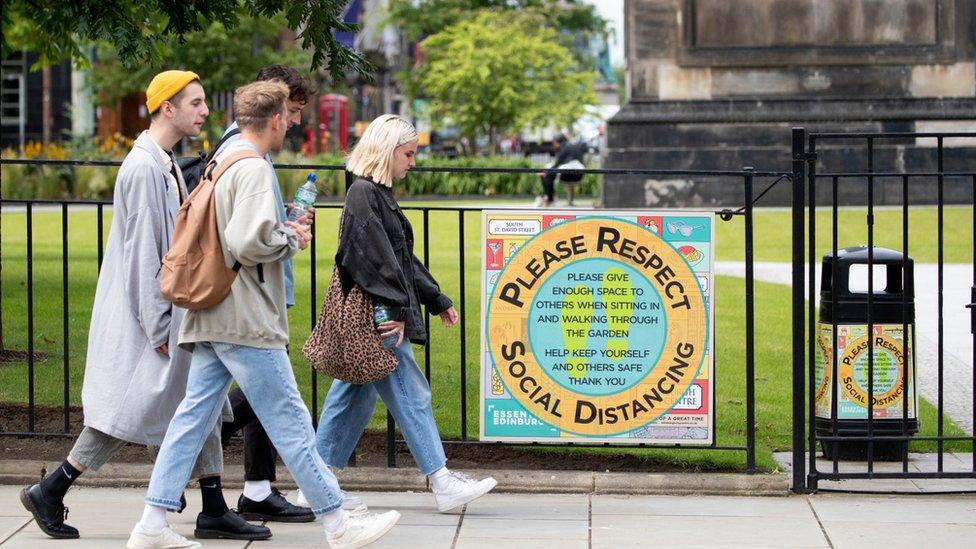Covid in Scotland: Sturgeon objective 'to eliminate' virus
- Published

First Minister Nicola Sturgeon has said Scotland's objective must be "to eliminate" coronavirus.
She told Holyrood's Covid-19 committee that striving to get new case numbers as low as possible was the only way to keep it under control.
Ms Sturgeon said "the virus won't play ball" with any effort to maintain case numbers at a "medium level".
The Scottish government has begun to ease some lockdown restrictions, although a stay at home order remains.
Chief Medical Officer Dr Gregor Smith said he did not believe coronavirus could be "eradicated", but said an elimination strategy of driving case numbers as low as possible would make outbreaks more manageable.
The government has brought forward some "relatively minor" easing of restrictions, with an increase in the number of people who are allowed to mix outdoors to begin on Friday.
Ms Sturgeon will set out a more detailed timetable for lifting lockdown next week, with the government aiming to return to a regional "levels" system of local restrictions by late April.
She told MSPs that the country was "heading firmly in the right direction right now", but said "we cannot afford to take our foot off the brake too soon".

The vaccination programme is widely seen as being one of the key ways out of the pandemic
The first minister told Holyrood's Covid-19 committee that the exit from lockdown "may be slower than everyone wants it to be".
She said her focus was for easing to be "steady and one-directional", rather than going too quickly and taking "one step forward and two steps back".
Ms Sturgeon backed an "elimination" strategy of driving virus levels as low as possible.
She said: "With a virus like this, what you absolutely can't do is just say we're going to let it simmer at this medium level, like a gently simmering pot.
"You can't just say you'll accept X number of cases a year and X number of deaths and X number of hospitalisations a year. The virus won't behave, it won't play ball with you like that.
She added: "You have to have an approach, in my view, where our objective has to be to eliminate. Even if you don't quite achieve elimination it is the act of trying to get it as low as possible that keeps it under control."
The Scottish Greens believed that if elimination was achievable there had to be a "step up" on testing and better support for those who needed to self-isolate.
MSP Mark Ruskell, who sits on the committee, said: "It is welcome that the first minister has moved away from talking about suppression of the virus and is now talking about eliminating it. The Scottish Greens support an elimination strategy, as pursued by countries like New Zealand, but to get there we need to see more ambition on testing and support to self-isolate."
He added that when restrictions are "gradually lifted", workplaces would need the support of a "robust testing regime" to prevent the virus from spreading.

The change to the rules will allow four people from two households to meet anywhere outdoors, including in gardens
Dr Gregor Smith said driving case numbers low would allow for outbreaks to be managed, in the same way as outbreaks of infectious diseases like measles.
He said: "What we mean by eliminate is not to eradicate the virus. Its my view that we won't eradicate Coronavirus.
"But what we can do on a regional basis and gradually expand that internationally is to drive these numbers down to as low a level as possible so it has as little impact on communities as is possible in morbidity and mortality.
"If we can do that then we can then manage the outbreaks, just as we do when we manage measles."
Emergency powers
Ms Sturgeon faced a range of questions during the committee session, with Conservative MSP Donald Cameron saying there was a "strong argument" for taking stock of whether emergency powers should be extended.
The first minister said she did not want emergency legislation to be in place "for a minute longer than it needs to be", but said the country was still in a difficult situation and that the government needed flexibility to act.
Meanwhile, Labour's Monica Lennon highlighted the disproportionate impact the pandemic has had on people from lower income backgrounds.
Ms Sturgeon replied that there had been "targeted investment" to help those who needed most, saying there was "a need for us to continue to look with a fresh eye at some of the new inequalities that have been created by the pandemic".

